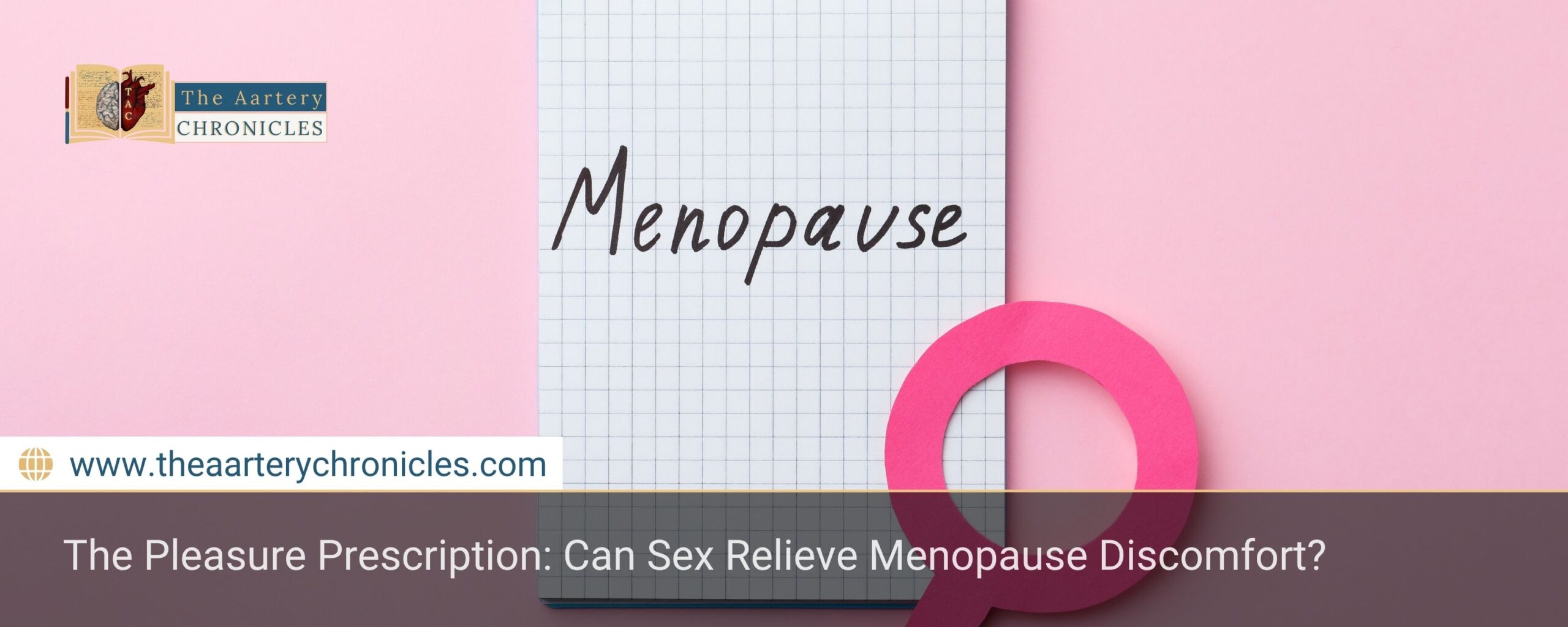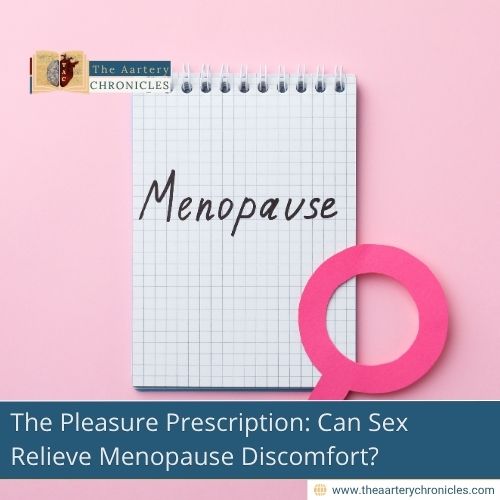

The Pleasure Prescription: Can Sex Relieve Menopause Discomfort?
Summary: Regular sexual activity during midlife and beyond may ease menopause-related discomfort like dryness, pain, and irritation without affecting satisfaction or orgasm. A new study of 900 women aged 40 to 79 suggests that intimacy itself could act as a natural remedy for Genitourinary Syndrome of Menopause (GSM), even when libido dips with age.
A Natural Remedy Hidden in the Bedroom
Could staying sexually active be a secret weapon against menopause symptoms? According to a new cross-sectional study published by the Menopause Society, women aged 40 to 79 who engaged in sexual activity in the past three months experienced significantly less vulvar pain, dryness, and irritation. Surprisingly, their ability to orgasm and feel sexually satisfied remained steady, even as libido and lubrication declined.
This research suggests that regular intimacy could help relieve symptoms of Genitourinary Syndrome of Menopause (GSM), a condition driven by estrogen deficiency that impacts the urinary and genital systems, often reducing quality of life in postmenopausal women.
What Is Genitourinary Syndrome of Menopause (GSM)?
First defined in 2014, GSM refers to a group of symptoms tied to declining estrogen and sex hormone levels. These include:
- Vulvar and vaginal irritation
- Dryness and burning
- Painful intercourse
- Urinary urgency and discomfort
These issues frequently result in reduced sexual frequency and, in turn, lower physical and emotional well-being.
Findings of the Study
Researchers analyzed over 900 women aged 40–79, categorising them into two groups:
- Regular sexual activity: Sex in the past 3 months
- Lower sexual activity: Sex in the past year but not in the past 3 months
Key Findings:
- Regular sex was strongly associated with lower rates of vulvovaginal symptoms like pain, itching, and dryness.
- Orgasm and sexual satisfaction levels did not decline with age.
- Only 2.9% of women reported using hormone therapy, suggesting that many may be unaware of or avoiding medical treatments.
The researchers used the Female Sexual Function Index (FSFI), a validated questionnaire assessing
- Desire
- Arousal
- Lubrication
- Orgasm
- Satisfaction
- Pain
Notably,
- Desire, arousal, and lubrication scores declined with age
- Orgasm and satisfaction scores remained stable across age groups
Sexual Activity May Be Protective
The study authors propose that regular sexual engagement even in the face of declining hormone levels, may help maintain tissue health and function, reducing the discomfort commonly associated with menopause. Vaginal tissues, like muscles, respond to use: sexual activity may encourage
- Blood flow
- Elasticity
- Lubrication
Clinical Implications: It's Not Just About Sex
Dr. Monica Christmas, Associate Medical Director of The Menopause Society, emphasizes a broader message:
“Optimal sexual health is integral to overall well-being, but we also must treat GSM in all women with symptoms, regardless of sexual activity.”
While sex may be beneficial, low-dose local vaginal estrogen therapy remains a gold-standard treatment for those experiencing persistent symptoms. It is safe, effective, and underutilised. Normalising its use, especially for women not sexually active, is crucial for improving quality of life.
Conclusion: Pleasure That Heals
This study shines light on a powerful, non-invasive tool that women can use to manage menopausal symptoms, sexual activity. Even as desire may wane with age, the act of intimacy itself might help preserve comfort, pleasure, and well-being.
Women experiencing GSM symptoms should consult their healthcare provider to discuss lifestyle strategies, like sexual activity and safe options like localised hormone therapy. Menopause doesn’t have to mean the end of sexual pleasure; it might be the beginning of better body awareness and empowered health decisions.

Dane
I am an MBBS graduate and a dedicated medical writer with a strong passion for deep research and psychology. I enjoy breaking down complex medical topics into engaging, easy-to-understand content, aiming to educate and inspire readers by exploring the fascinating connection between health, science, and the human mind.








